#krishna radha
Text

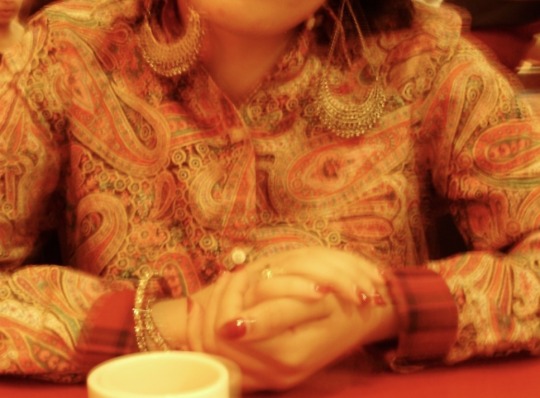
I thrive off of exchange, off of attention, off of acts of affection that set my love into motion.
30 notes
·
View notes
Text
Krishna : I am so cool. I am an absolute Chad. I am the epitome of coolness and awesomeness—
Radha: Hi.
Krishna : *melts down in a flustered heap of softness*
#radha#radharani#radha krishna#krishna#simp behavior#krishna is a simp#kanha is a simp#mere pyaara kanha#i want what they have#krishna radha#gopiblr#kanhaiya#krishnablr#desi stuff#kanha#krishna is the best#hindu mythology#krishna memes#radha memes#krishna incorrect#incoorect quotes#incorrect mythology quotes
128 notes
·
View notes
Text

The endearing youth looks around
Searching for something, seeking someone
All the gopi of Brij ask their darling
“What is that thee seek so dearly Girdhari?”

“Thy footsteps have become transient?
Our anklets which chimed along with your
the melodious morning flute feels distant and silent.
What is that thee seek so dearly Govind?”

“We scan amber heaven for thou as
our kohl feels amiss without thy divine embrace,
the universe feels unfathomable and labyrinth
What is that thee seek so dearly Vasudev?

The saccharine smile of the youth
gazes the sky reflective of his complexion
with those bejeweled eyes affixed yet adrift
extends his sapphire hands as he says

‘I yearn, the beauty’s euphoric darshan
she, the very presence of self
adorned in humility of Vrindaban
This Murali seeks for his Manmayi’

I yearn, for the essence of tenderness
She, who dances under nightfall luminous cape
embellished herself in ornaments from the moon,
This Keshav seeks for his Keshavi’

‘I yearn, the nectar of their name,
undiluted bliss, clinging to me like a rare perfume
melts away heavenly sinners’ lie
This Shyam seeks for his Radhe’

- nocturne
#nocturne writes sometimes#for someone called gopi#desi#krishna radha#bol radha bol#radhe shyam#desiblr#oc poetry#tumblr poetry#poetry#poets on tumblr#dead poets society#poetries#book quotes#dark acadamia quotes#spilled poetry
143 notes
·
View notes
Text
The Eternal Love of Radha Krishna: A Divine Union
Introduction:
The love story of Radha Krishna is not merely a tale of divine romance but an expression of profound spiritual devotion, unparalleled in its essence and intensity. Their sacred bond epitomizes the union of the individual soul (the Jiva) with the supreme soul (the Paramatma), serving as a guiding light for seekers of divine love and transcendence. Let us delve into the enchanting…

View On WordPress
#kanha#krishna#krishna kanhaiya#krishna radha#love of Radha Krishna#radha krishna#radha rani#radhekrishna
3 notes
·
View notes
Text

Vrindavan Fashion Week.........Gulaal (Spring-Summer) Collection
[I understand neel megh varna and everything but the black coloured krishna murtis are just.....🤌😭💖🤌😭💖🤌😭💖]
#hindu mythology#hindu memes#krishna#hinduism#mod miru 🌺#radha#krishna radha#just another day in vrindavan#vrindavan#vaishnava
45 notes
·
View notes
Text
Radha Krishna Love Customised Wallpaper for wall. This is a customised wallpaper and it can be made for any wall dimensions @ inspireDecors - Tirupati
#inspiredecors#tirupati#home decors#furnishings#tirupathi#home furnishings#interiors#upholstery#customised wallpaper#wallpaper#krishna radha#radharani#krishna#love
1 note
·
View note
Text
1 note
·
View note
Text
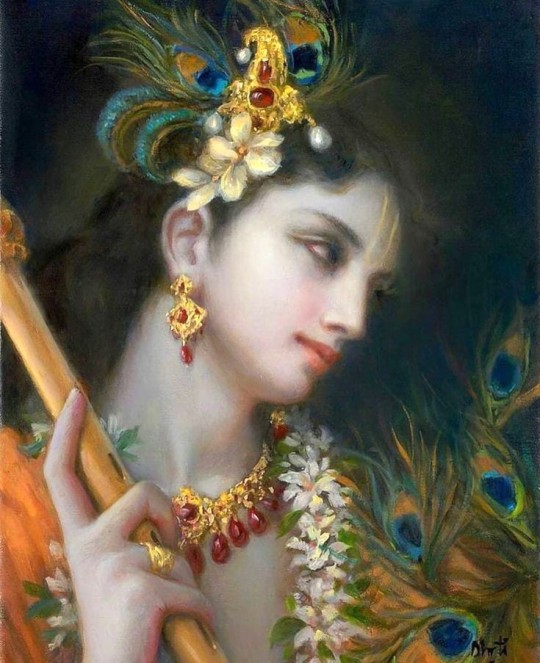


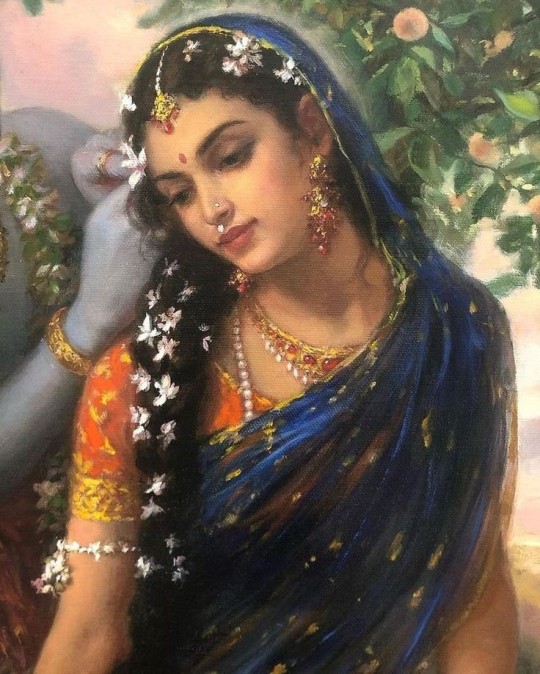
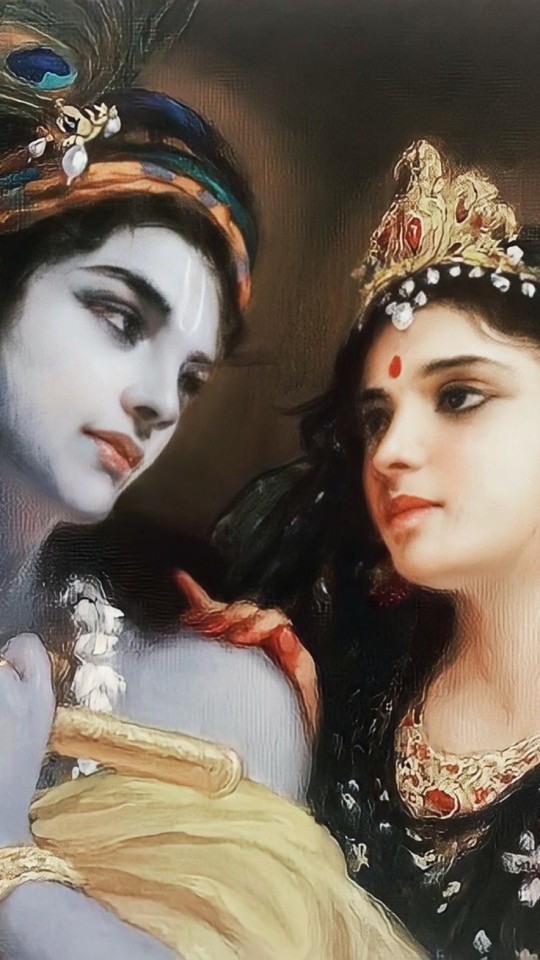
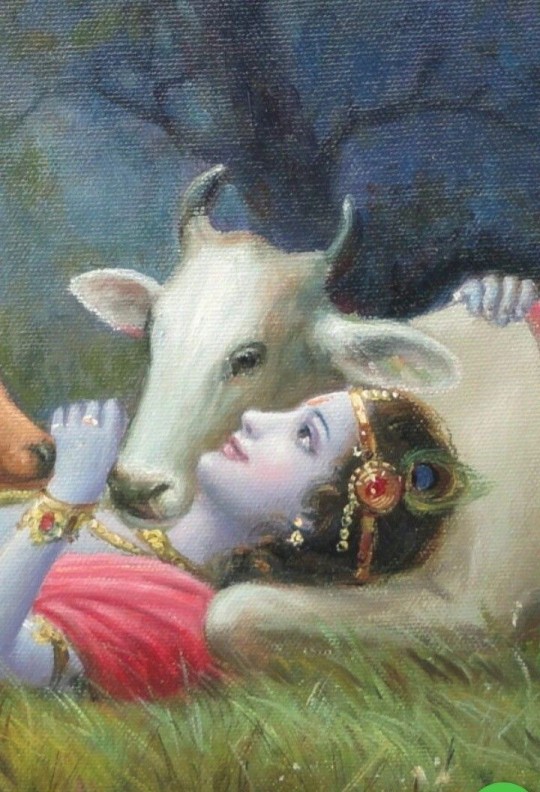
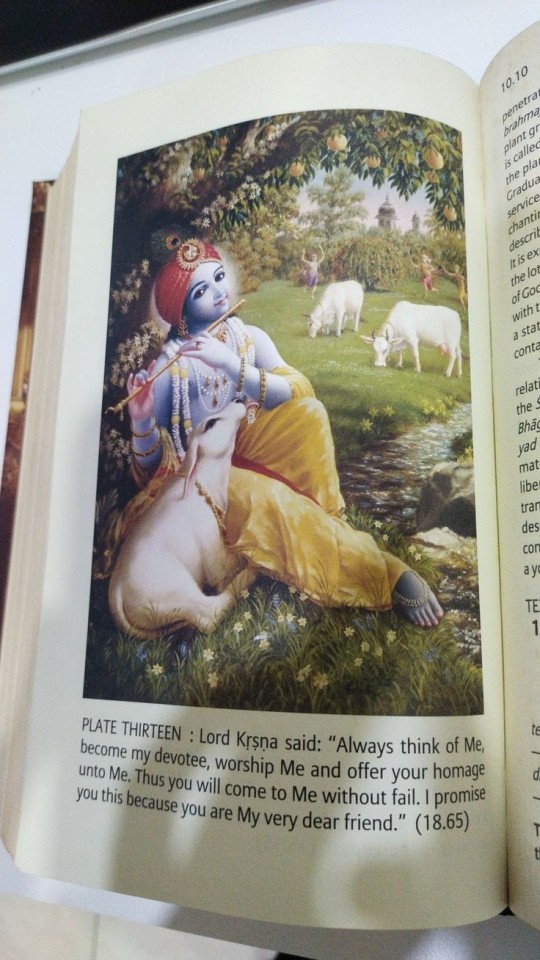
There's a supreme power up there
Watches me, listens me and my prayers,
Blesses me with the powers and things that i could never think of,
Showers all the love and care.
।। कृष्ण सदा सहायते ।।
#positivity#krishna#radha krishna#krishnaknows#tumblr#life#god#radharani#spirituality#hare krishna#love#sanatandharma#jai shree krishna#kanha#radhe shyam#sita ram
100 notes
·
View notes
Text


when they say i miss you. but Krishna in githa govinda said “O radhe, please place your feet on my head and cure me of the poison of longing.”
#desi tumblr#desiblr#desi tag#desi aesthetic#poetry#poets corner#indian dark academia#desi culture#desi poetry#desi stuff#indian poetry#indian men#indian literature#krishna#radha krishna#raas leela#indian painting#paintings#poets on tumblr#poems on tumblr#desidarkacademia#desi love#desi moodboard#being desi#desi post#desi things
401 notes
·
View notes
Text
My favourite Krishna painting of all time-
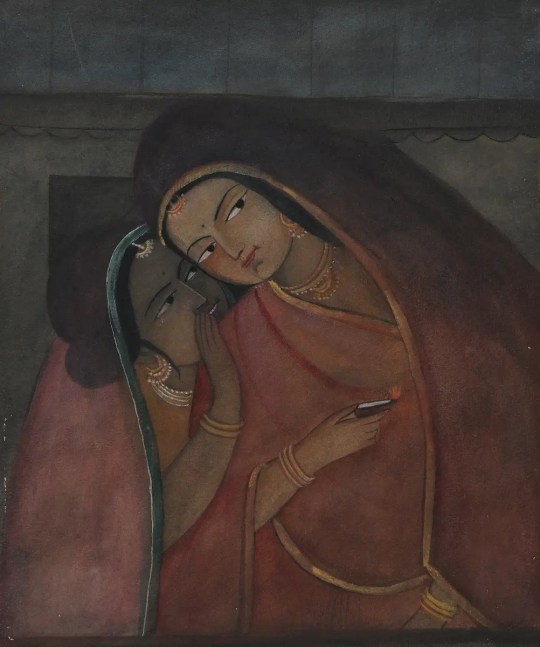
Since Mod G is trying to revive the blog, I'll also do my part. I decided to begin it by sharing this painting I think about a lot. It's called 'Krishna Consorting Radha in a Guise of a Gopi' by Sunayani Devi. It's on display at the Indian Museum. And I absolutely adore it.
It's supposed to be flirting but it just looks like Krishna has the SICKEST gossip to share. The tea is piping hot and he's about to serve it.
-Mod S
#he's definitely the village gossip bitch#hindu mythology#krishna#lord krishna#radha#I'm tired#mod s is tired#mod: s
176 notes
·
View notes
Text

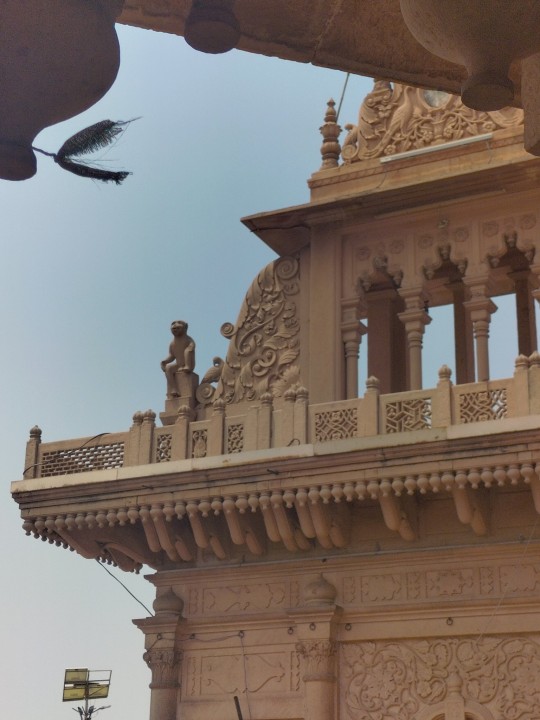


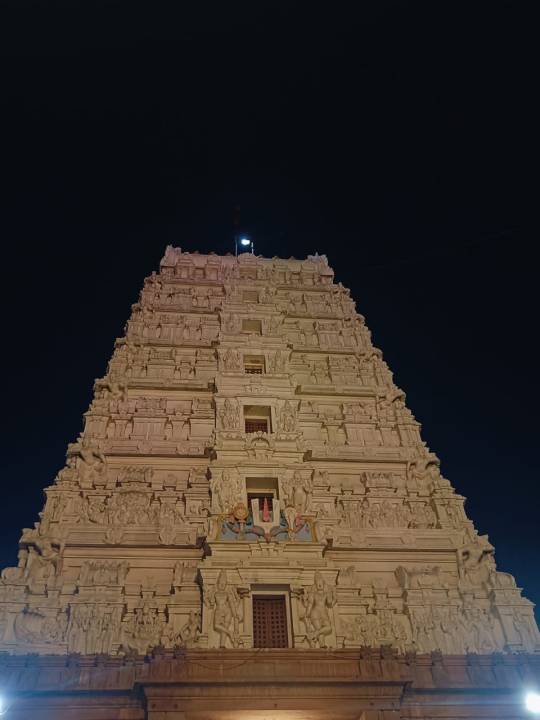
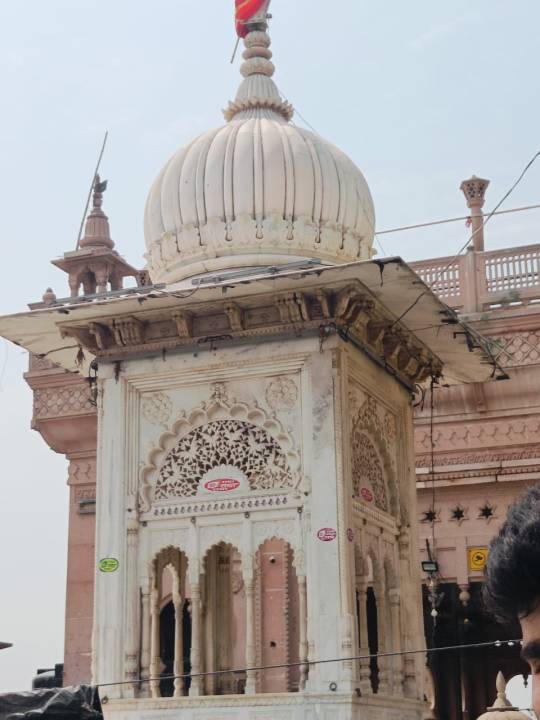
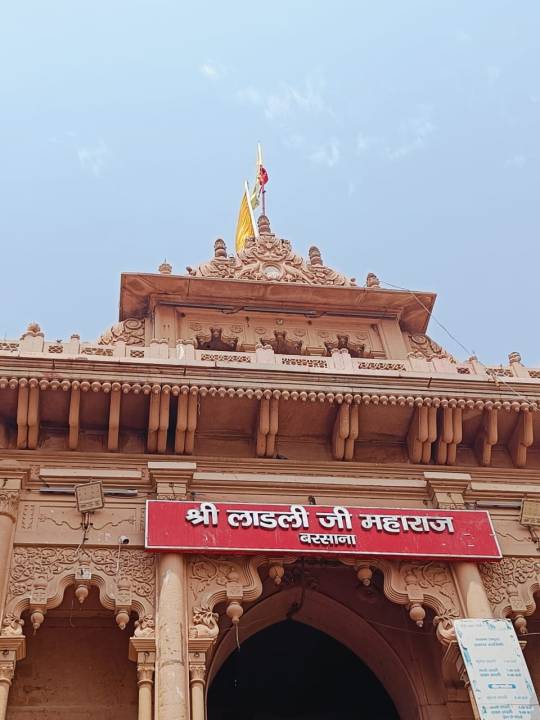
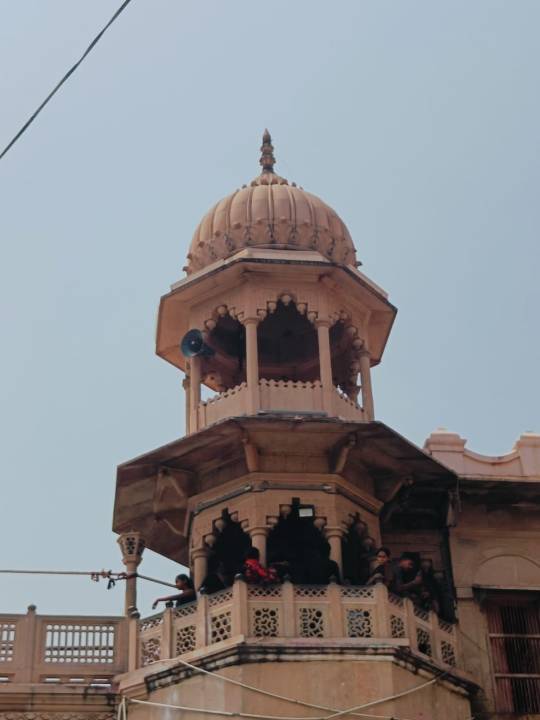

beyond tired but look how pretty. First trip ever to Vrindavan. The heat was maddening. The lassi has my heart forever. The monkeys took my father's glasses(got them back in exchange for three frootis). The hotel service was abysmal. I adored the love you feel inside the city. As if the gods' beating heart is what keeps the city alive. Bankey Bihari ji is beautiful. Radha Rani is ethereal. The paintings on the ceiling of the temple were breathtaking. We got lost in the streets many times. Google maps is blind. I'm going to sleep now.
#vrindavan#barsana#braj#radha rani#krishna#radha krishna#desiblr#hindublr#hinduism#desi life#desi women#being desi#desi teen#desi tumblr#desi tag#desi posts#desi aesthetic#desi side of tumblr
69 notes
·
View notes
Text
How many of y'all are just waiting for kalki Bhagwan at this point 🙋
#radha krishna#mahadev#vishnu#ayodhya#india#hanuman#desi tumblr#hindublr#hinduism#kalki Bhagwan#kali yuga
138 notes
·
View notes
Text
Krishna: a character adored for over two thousand years, revered as one of the most significant political masterminds of the ancient world with his words forming the philosophical core of the country today. Concurrently, he is the god shrouded in inimitable domesticity- as a friend, a lover, and a child. No other deity in the Hindu pantheon has probably achieved as dear a position in the hearts of people as this flute-wielding cowherd of Gokula.
For generations, he has shined as the muse of countless poetfolk, of unfinished business, of unspoken desires and of repressed lovers' qualms. In Meera's longing for her marble beloved, and in Kothai's dulcet dreams of a celestial wedding, Krishna blossoms not as a warrior, but rather as a confidante of young women- the keeper of all secrets.
Curse, o ye, this wedding of devotion,
For I was better off unmarried,
Writes the lovestruck Nawab Sadiq Hilm,
I was well enough at my mother's;
Oh, why did I pine for him?!
Who am I, or what: go ask Rizwan, the gatekeeper
For heaven has been rejected by my forebearers!
He says, in a nostalgic ode to the cowmaids from old tales. To the ones that massage the dust off their feet on Krishna's fevered forehead to soothe his illness, even as the apparent disrespect dooms their afterlives.
Jayadeva notes a more rugged form of Krishna, one that is almost hungry for love. His Radha smiles down upon Radharaman Dutta's kalankini. Of course, she would accept even infamy if it was in relation to her Krishna. However, in time, this epithet has been reclaimed as a celebration of the meteoric, tempestuous love that this unseemly duo had carved out for themselves of the pages of a mostly unwilling history.
Tagore's Krishna is mysterious, eagerly anticipated but rarely seen. Rather, here Radha's pining is crushing and all-encompassing, inherited from Chandidas' virahini. Radha's guttural desire to transform Krishna into herself, subjecting him to the same suffering that she undergoes as a woman in love with a furious ideology more than a man, reverberates eerily against the lighthearted cross-dressing tale of Surdas'.
As often as bards favour the songs extolling the love of the cowherd and the wedded maiden, Krishna's wives are seldom accorded any thought outside of Vasudeva's family tree. Their silence speaks to the stringent rules of a typical patriarchal household. Some of them do speak, and hence Satyabhama becomes conceited and Kalindi wayward. However, the mere few lines that they are mercifully allotted in the text are enough to speak to their resilience. The lines inadvertently hold up a window to the million unspoken words and unexchanged glances. It speaks to the long years, happy and sad. It speaks to the nights of waiting for the beloved to return. It speaks to the quiet lunches in curtained rooms and taste tests in the kitchen.
Each of Krishna's eight wives has their own life, and their own equation with Krishna. Each of their distinct personalities, coupled with their unique introductions to the prince has the potential to bring a distinct flavour to the story of Krishna, the statesman. The understanding that Krishna's heart belonged first to Vrindavana and then to his ambition, must have weighed somewhat on their hearts and yet, the choice to patch up the battle-hardened cowherd, after every blow, sans complaint, and send him out into the world as the architect of history, must have demanded restraint.
The distinct turn of events that brings each of the chief eight queens to Krishna's is quite interesting. Rukmini, the first, demonstrates heart, even if it is born out of desperation. Seizing control of her life, she sends a message, relying solely on rumours of his compassion. Her gamble yields returns manifold as Krishna not only rescues her from an unwanted marriage, but instates her as his chief consort, elevating her, alongside himself, to a divine status. Far from the impulsiveness of her youth, Pandhari's Rakhumai, astute beside her beloved, proudly bears a conch-shell, calling for harmony and community. In life as well, Rukmini brings to Krishna much needed stability, and oversees the blossoming of the city of Dwarika as well as Krishna's growing household.
Jambavati and Satyabhama are given in marriage to the prince by their respective fathers and do not seem to have much of a voice at the time. Jambavati fulfills an ancient destiny, a forgotten promise, then going on to mother the child that ultimately brings about the demise of the Yadava clan. Satyabhama, though often maligned with unfair accusations, is self-reliant. Making no attempt to hide herself from the eye of society, takes her rightful place beside Krishna, not on a throne, but by his side in battlefields. Kalindi however, is an extremely interesting character in Krishna's story. Enmeshed between mortal and divine, she exists as neither. Chancing upon the prince, she unabashedly declares her intentions to be married, and yet she is uncharacteristically silent after her marriage. Lakshmana and Mitravinda, are both won in conquest. They might have been able to sympathize with Rukmini, given their kin had turned against them, on account of their choice of a life partner. Bhadra, on the other hand, has no fancy contests to boast of, or an adventurous rescue. She marries Krishna at the behest of her brother, the only highlight being the arduous journey she undertakes from Kekaya to Dwarika.
After their marriages, these women practically disappear from the narrative until their last moments. We can assume that they were all presumably content with a life outside the spotlight. One can only hope to be privy to their lives after marriage, to know their dreams, nightmares and daily chores. They enter Krishna's life at crucial junctions, and I choose to believe they each had a unique effect on Krishna's worldview, bringing with them a fresh outlook into the mostly stagnant golden city.
#krishna#radha#original writing#mahabharata#hindu mythology#rukmini#satyabhama#kalindi#desi tumblr#ehi murare#prologue#jambavati#mitravinda#lakshmana#bhadra#nagnajiti
149 notes
·
View notes
Text
Because our krishna didn’t just steal butter when he was a kid, he stole our hearts too 💜 💜
73 notes
·
View notes
Text
i imagine vrindavan to be chaotic and messy in the best way possible. krishna playing his flute means that everyone will stop whatever they are doing. radha and the sakhis constantly try to outwit this makhan chor but to no avail. every prank of theirs is reported by the parrots that krishna bribes feeds everyday for this entire purpose.
mother yashoda and nanda maharaj are doing their duties when krishna's elder brother balram rushes in, throwing accusations against krishna.
krishna refutes them and the parents share a fond look with each other while their mischevous children argue.
dwarka is no less chaotic, perhaps tempered by the maturity krishna shows. the makhan chor of braj remains with the people of vrindavan, gokul, barsana and only them. dwarka sees the dawn of yaduvanshi vāsudev shri krishna. a new leaf of the same flower of madhav.
#desiblr#krishnablr#krishna#vrindavan#radha#radhakrishna#rukmini#dwarka#balram#punya.txt#ramblings#kinda suprised my braincells co-ordinated for this#why isn't rukminikrishna a tag?#rest of the ashtabharyas where?#que the queue
204 notes
·
View notes
Text
Why need therapy when you find सुकून in कृष्ण भक्ति !!😌🌹
67 notes
·
View notes